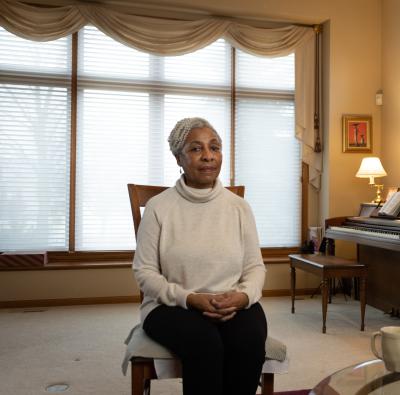Every new election cycle brings a new round of record-breaking election spending that grabs headlines and threatens to drown out the voices of everyday people in our elections.
But recently, headlines have highlighted actions taken by the Philadelphia Board of Ethics to protect the voices of Philadelphians and update its campaign finance rules.
In...
The work of nonpartisan civic engagement groups like the League of Women Voters of Florida (LWVFL) is a core part of building a better democracy from the ground up.
These groups register voters, hold community educational events and promote civic engagement—yet their efforts have come under increasing attack by self-interested politicians, with the...
The Federal Election Commission (FEC), the very agency charged with regulating money in politics, has repeatedly fallen short in its duties over the past decade. Specifically, it has consistently failed to conduct oversight and enforce federal campaign finance laws, including the laws that prohibit super PACs and other outside groups — including...
Rhode Island has taken an important step forward in the fight against secret spending in our elections. After passing a groundbreaking transparency law over a decade ago, the state has adopted regulations to ensure the law, appropriately titled “An Act Relating to Elections — Disclosure of Political Contributions and Expenditures,” can now be fully...
Voters have a right to know who is spending money to influence their vote and our government. Transparency is necessary to understand who is supporting which candidates and why, so that voters can make informed choices at the ballot box. That’s why federal law requires candidates and committees to disclose their contributors.
One way that wealthy...
A new Op-Ed by CLC Senior Researcher Roger Wieand, published by Newsday, examines tactics deployed in the special election to replace ousted Rep. George Santos that appear deliberately designed to undermine transparency.
Voters have a right to know which wealthy special interests are spending big money to secretly influence their vote and our...
When federal candidates and committees spend money to influence elections, they have to disclose that spending in publicly filed reports, which creates transparency for voters trying to decide who to vote for and helps ensure accountability if donors’ money is misused.
Federal campaign finance laws require candidates and committees to publicly...
Nobody likes robocalls, but they’re an effective way to raise money for political campaigns. Yet some of the groups behind these calls aren’t actually using donations to support political causes.
Instead, these committees, often referred to as “scam PACs,” pretend to fundraise for major candidates or issues while secretly diverting almost all of...
In a major legal victory, a federal judge just struck a blow against Tennessee’s unequal and inaccessible felony disenfranchisement regime, ruling that Tennessee election officials cannot wrongly deny Tennesseans with past felony convictions their freedom to vote if they are eligible and the state must fully inform potential voters with past felony...
The Senate Ethics Committee is the only body responsible for ethics enforcement in the Senate. It has a responsibility to investigate allegations of ethical misconduct so that the public can be sure that their elected officials are acting ethically.
That is why CLC filed a complaint with the Committee against Senator Ted Cruz for circumventing the...
When federal candidates raise money to run for office, there are important legal safeguards that limit how much they can raise from any contributor, prevent candidates from taking money from certain sources, like corporations and federal contractors, and require candidates to openly disclose who they are getting their money from, and how they are...
Free and fair elections rely on every voter having the ability to make their voice heard. Unfortunately, voters with disabilities are often met with a range of disproportionately burdensome barriers — from polling locations without ramps to restrictions on accessible voting options like vote-by-mail — that limit their ability to access the ballot...
When Senator Ted Cruz made a deal in 2022 with a major media corporation, iHeartMedia, to help produce and more widely distribute his podcast, “Verdict with Ted Cruz,” he insisted that he wasn’t personally benefiting from the podcast deal and that he was volunteering his time, comparing his work hosting the now thrice-weekly podcast to his...
Our democracy works best when every voter can participate, and civic engagement groups help make that possible by helping more people engage in our democracy and assisting those who need it. But Alabamians are now confronted with a new law that restricts their ability to help their neighbors vote and make their voices heard.
On March 20, 2024...
In a major win for transparency and accountability in Texas, the Texas Supreme Court has declined to hear an appeal of a case challenging the legitimacy of the Texas Ethics Commission.
For more than 30 years, the Texas Ethics Commission has deterred public corruption in the Lone Star State and provided transparency in elections by enforcing the...
CLC has filed multiple complaints with the U.S. Senate Select Committee on Ethics (Ethics Committee) showing that more than 47 Senate candidates competing in the 2024 cycle failed to file their legally required personal financial disclosure reports in 2023.
At least nine of those candidates are still running and claim to have loaned thousands of...
The Federal District Court for the District of Arizona has dismissed a lawsuit brought by Americans for Prosperity (AFP) and the Americans for Prosperity Foundation (AFPF) challenging the constitutionality of Proposition 211, also known as the Voters’ Right to Know Act.
The ballot measure was approved by 72% of Arizona voters in November 2022 after...
As the 2024 election rapidly approaches, the risk that artificial intelligence (AI) could be used to deceive voters or manipulate our democratic process continues to grow. Thankfully, there are promising signs in Congress for a bipartisan path to safeguard elections from the emerging threat this technology presents.
AI is a game-changer due to its...
Every election cycle, candidates and political parties use a legally dubious tactic known as “redboxing” to provide instructions and strategic guidance to supportive super PACs, 501(c)(4) dark money groups, and other supposedly “independent” groups that collectively raise and spend billions of dollars to influence elections.
Federal campaign finance...
Many voters continue to be concerned about the possibility of encountering voter intimidation at the polls, in their mailboxes and even at their own doorsteps. In recent years, bad actors have intimidated voters by distributing false information or asking voters invasive and illegal questions about their registration status.
But you should not be...
A newly released investigation by the Department of State Office of Inspector General (OIG) has revealed misconduct and mismanagement by a U.S. ambassador — a wealthy businessman with no prior foreign policy experience — who was appointed to the role after making hundreds of thousands of dollars in political contributions.
While unacceptable...

